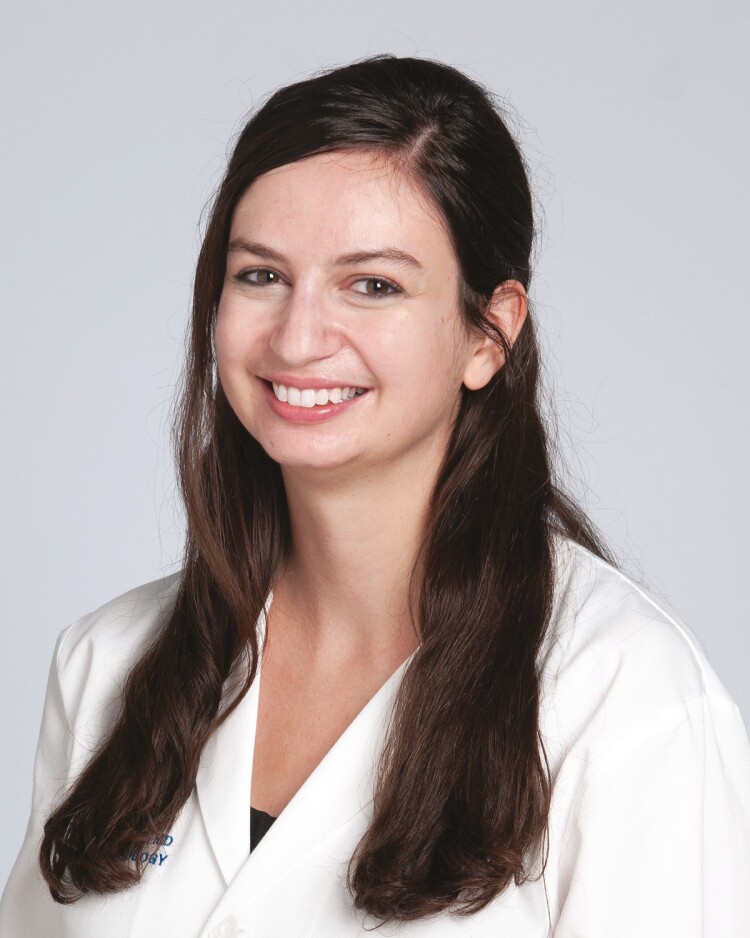The global incidence and prevalence of inflammatory bowel disease (IBD) have continued to increase.1 Fortunately, the field of IBD has also experienced significant growth. While treatment options were once quite limited, there are a growing armamentarium of medications available with literature dedicated to optimal positioning of these therapies in the IBD patient population. New treatment targets including endoscopic and histologic remission are being sought. Options for disease monitoring have expanded to include biomarkers such as fecal calprotectin and novel imaging modalities such as intestinal ultrasound. In short, it is an exciting time to be an IBD gastroenterologist.
In the midst of all this growth, it is hardly surprising that there are an increasing number of IBD fellowship programs across the country (per the Crohn’s and Colitis Foundation website, there are now 27 programs). Though these fellowships are not Accreditation Council for Graduate Medical Education accredited and applications occur outside of Electronic Residency Application Service, they have nevertheless become an important part of gastroenterology education.
Whether to pursue an IBD fellowship is dependent on the career goals of each individual (Table 1). However, anyone who cares for patients with IBD and wishes to do so as part of their practice should consider it. Relevant factors that can help guide decision-making include exposure to care of patients with IBD during general gastroenterology fellowship, planned amount of time dedicated to care of patients with IBD post fellowship, and academic and research goals.
Table 1.
Whether to pursue IBD fellowship based upon professional goals.
| Trainee professional goals | Recommend IBD fellowship | IBD fellowship is optional |
|---|---|---|
| Academic career in IBD | + | |
| Research-focused career in IBD | + | |
| Education-focused career in IBD | + | |
| Clinical career in IBD | + | |
| Be the “go to” for IBD at a tertiary center | + | |
| Establish an IBD medical home | + | |
| Private practice with a focus on IBD | + | |
| General GI private practice | + | |
| Private practice with plan to refer complex IBD cases | + | |
| General GI academic career | + |
Abbreviations: IBD, inflammatory bowel disease.
With regards to exposure to IBD during the three-year fellowship, data has shown that the general gastroenterology fellowship is not always enough—in a 2016 survey, only 28% of gastroenterology fellows were satisfied with their exposure to IBD and in a 2023 survey most fellows reported low confidence across several basic domains of IBD management despite approximately half receiving training at institutions with an IBD center.2,3 Efforts to address this have grown in recent years, including IBD101 through the American College of Gastroenterology, the Crohn’s and Colitis Foundation Visiting Fellowship program, and several other national IBD-focused educational offerings for gastroenterology fellows.4 IBD fellowship is a great option for those who want to pursue a career primarily focused on IBD, whether that is clinical, educational, research, or a combination.
After the three-year gastroenterology fellowship, the IBD fellowship requires an additional year (or 2) and a significant commitment from the trainee. Weighing personal and professional factors are required. It is our opinion that those gastroenterologists who wish to dedicate a substantial amount of their clinical practice and/or academic time to IBD should do the fellowship, regardless of level of exposure to IBD during general fellowship. The IBD fellowship can benefit the trainee pursuing a clinical IBD practice in a community or academic practice. There are a growing number of private and community practices seeking “IBD-ologists” and preferring candidates with IBD Fellowship training. Similarly, tertiary, academic centers are seeking gastroenterologists interested in a primary clinical practice in IBD. These positions are becoming increasingly competitive and an IBD fellowship is often required by academic centers. Many employers are interested in developing IBD Centers, both in the community and in tertiary referral centers. For those interested in creating an IBD Center, an IBD Fellowship is important. The clinical training is essential, but the understanding of multidisciplinary care, building teams of people who care for IBD patients, and the emerging Medical Home concept is difficult to learn outside of an IBD Fellowship.5,6
Those interested in an IBD research or academic career should consider the IBD fellowship. Many IBD Fellowships incorporate a research component into the clinical year, and some allow a focused research track. For those pursuing an IBD translational or science career, the IBD Fellowship is a minimum requirement, but additional years are usually necessary. Whatever the IBD research path that one chooses, dedicated time in the IBD fellowship is invaluable and allows the trainee to build their research skills and portfolio, establish a mentor, meet other academic IBD faculty, and increase competitiveness for future grant applications.
There are limitations to an IBD Fellowship and the personal consideration needs to be weighed with the professional, that is, the need for another year of training, delay in higher compensation, and often a lack of exposure to other aspects of general gastroenterology (Table 2). Some programs may incorporate general gastroenterology time, but often a dedicated IBD fellowship does not include “bread and butter” gastroenterology. Additionally, the fellow often needs to move to a new city for one year and then needs to move again after the fellowship. The benefits to IBD fellowship include the necessary training in the unique facets of IBD patient care. Examples include, but are not limited to, positioning of advanced therapies, timing and approaches to surgery, health care maintenance in this patient population, intestinal ultrasound, endoscopy in the patient with IBD and exposure to the multidisciplinary care across pharmacy, nutrition, psychology, dermatology, rheumatology, radiology, and more. Finally, the IBD fellowship establishes important relationships with mentors and IBD experts that often spans one’s IBD career.
Table 2.
Pros and cons of IBD fellowship.
| Pros | Cons |
|---|---|
| Establish a mentoring team | Requires a substantial time commitment |
| Connect with academic IBD faculty | Leads to a delay in the increased compensation that comes with an attending-level position |
| Develop research skills and an IBD portfolio | May require relocation |
| Master nuances of IBD care | Limited number of programs requires flexibility regarding location of training |
| Learn how to provide multidisciplinary IBD care | Decreased breadth of gastroenterology practice during the fellowship |
| Build a peer network of IBD providers | No ACGME accreditation offered for completion of fellowship |
| Increase competitiveness for IBD-focused jobs | Training experience across programs may vary |
Abbreviations: ACGME, Accreditation Council for Graduate Medical Education; IBD, inflammatory bowel disease.


Contributor Information
Katherine Falloon, Department of Gastroenterology, Hepatology, and Nutrition, Digestive Disease Institute, Cleveland Clinic Foundation, Cleveland, OH, USA.
Miguel Regueiro, Department of Gastroenterology, Hepatology, and Nutrition, Digestive Disease Institute, Cleveland Clinic Foundation, Cleveland, OH, USA.
Funding
K.F. receives grant funding from the Crohn’s and Colitis Foundation (Grant Number 916943) and Pfizer (Grant Number 90146787).
Conflicts of Interest
K.F. served on an advisory panel for Janssen. M.R. Advisory Boards and Consultant (both) for Abbvie, Janssen, UCB, Takeda, Pfizer, BMS, Organon, Amgen, Genentech, Gilead, Salix, Prometheus, Lilly, Celgene, Boehringer Ingelheim Pharmaceuticals Inc. (BIPI), Celltrion, Roche.
Data Availability
No new data were generated or analysed in support of this research.
References
- 1. Caviglia GP, Garrone A, Bertolino C, et al. Epidemiology of inflammatory bowel diseases: a population study in a healthcare district of North-West Italy. J Clin Med. 2023;12(2):641. doi: 10.3390/jcm12020641 [DOI] [PMC free article] [PubMed] [Google Scholar]
- 2. Cohen BL, Ha C, Ananthakrishnan AN, Rieder F, Bewtra M.. State of adult trainee inflammatory bowel disease education in the United States: a national survey. Inflamm Bowel Dis. 2016;22(7):1609-1615. doi: 10.1097/MIB.0000000000000766 [DOI] [PMC free article] [PubMed] [Google Scholar]
- 3. Al-Bawardy B, Malter L, Ehrlich AC, et al. Assessment of inflammatory bowel disease training among gastroenterology fellows. Inflamm Bowel Dis. 2023;29(12):1990-1992. doi: 10.1093/ibd/izad030 [DOI] [PMC free article] [PubMed] [Google Scholar]
- 4. Malter L, Hong SJ, Lopatin S, et al. Increasing exposure to inflammatory bowel diseases education in gastroenterology fellowship: the pilot IBD 101 experience. Inflamm Bowel Dis. 2024:izad311. doi: 10.1093/ibd/izad311 [DOI] [PubMed] [Google Scholar]
- 5. Cohen BL, Gallinger ZR, Ha C, et al. Development of entrustable professional activities for advanced inflammatory bowel disease fellowship training in the United States. Inflamm Bowel Dis. 2020;26(9):1291-1305. doi: 10.1093/ibd/izaa177 [DOI] [PubMed] [Google Scholar]
- 6. Regueiro M, Click B, Holder D, Shrank W, McAnallen S, Szigethy E.. Constructing an inflammatory bowel disease patient-centered medical home. Clin Gastroenterol Hepatol. 2017;15(8):1148-1153.e4. doi: 10.1016/j.cgh.2017.05.026 [DOI] [PubMed] [Google Scholar]
Associated Data
This section collects any data citations, data availability statements, or supplementary materials included in this article.
Data Availability Statement
No new data were generated or analysed in support of this research.


